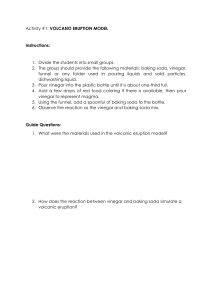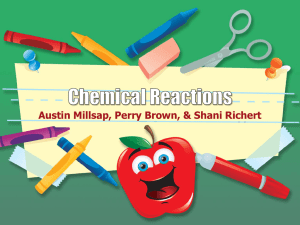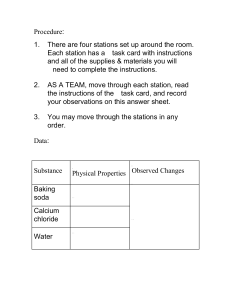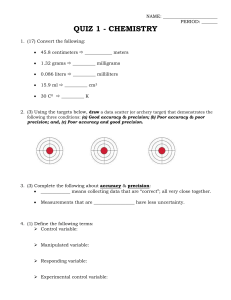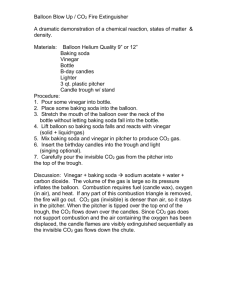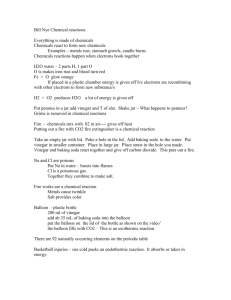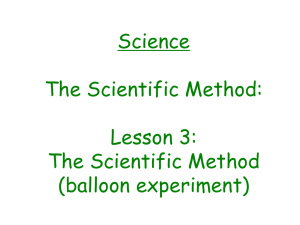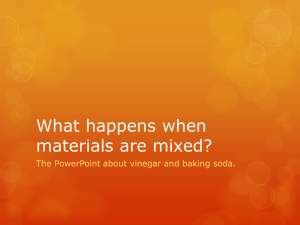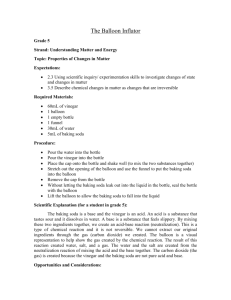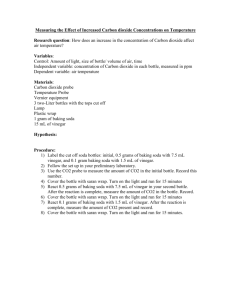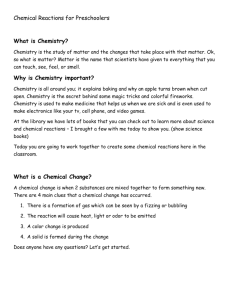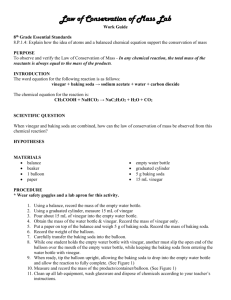Baking Soda and Vinegar Powered Car
advertisement
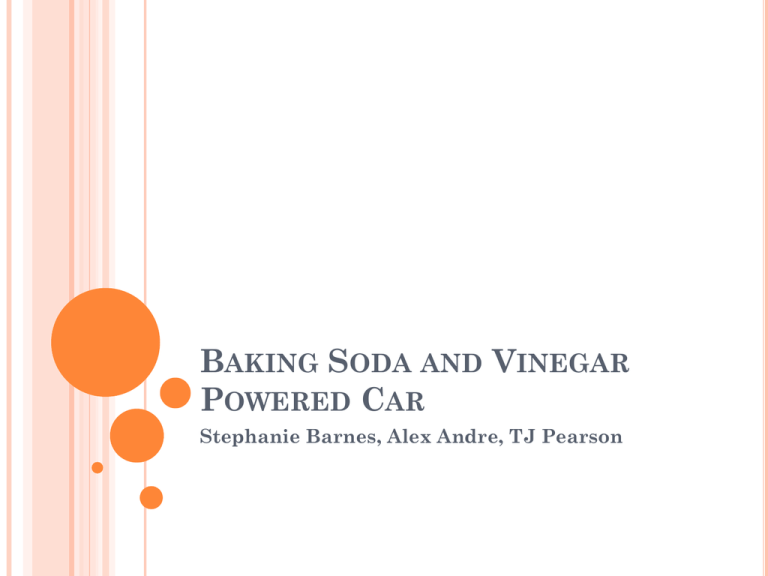
BAKING SODA AND VINEGAR POWERED CAR Stephanie Barnes, Alex Andre, TJ Pearson THE TEAM REACTION CHEMISTRY We used 7g of Baking Soda and 100mL of Vinegar to theoretically produce 2.86 atmospheres of pressure in the 700mL Propel bottle. CAR DESIGN RESULTS Trial # Amount of Baking Soda (g) Amount of Vinegar (mL) Distance (ft) 1 11.5 150 35 2 9.5 120 20 3 9.5 130 30 4 9 125 35 5 7 100 24 6 7 100 26 7 7 100 24.5 8 7 100 23 9 7 100 27 10 7 100 25 RESULTS Distance (ft) Amount of Baking Soda and Vinegar Compared to Distance 40 35 30 25 20 15 10 5 0 CONCLUSION Our car placed 4th in our lab class. Overall, the distances the car went were fairly consistent, although they were a few feet short of the goal most of the time. We went through about eight different car designs until we finally had a successful run. At first, we wanted to use a balloon instead of a bottle, but we could not get it to go more than 6 feet. Another issue we faced was with the HCl and Baking Soda reaction, which we could not make consistent. We finally decided to use Baking Soda and Vinegar reaction because we had a better understanding of the chemistry behind it and how much of each chemical to use to attain the right distance with our car. IDEAS FOR NEXT TIME If we were to do this experiment again, we would try to find a balloon large enough to hold a greater amount of gas. The benefits of using a balloon rather than a bottle is that the reaction would not take place within the balloon; the balloon would simply be a means for catching the gas produced from the reaction which would take place in a bottle not attached to the car. This would eliminate spew entirely.
